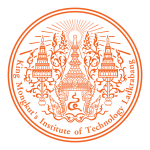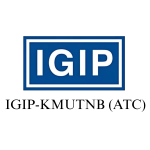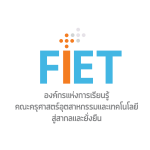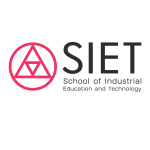Unlocking the Future 7 Ways Quantum AI is Revolutionizing Technology_7 (2)
- Unlocking the Future: 7 Ways Quantum AI is Revolutionizing Technology
- Transforming Drug Discovery in Healthcare
- The Future of Precision Medicine
- Reducing Development Times
- Enhancing Financial Models
- Real-Time Analytics
- Streamlining Regulatory Compliance
- Optimizing Supply Chain Management
- Crisis Management and Response
- Improving Operational Efficiency
- Revolutionizing Cybersecurity
- Next-Generation Authentication
- Predictive Analytics for Breach Prevention
- Innovating Manufacturing Processes
- Enhanced Predictive Maintenance
- Resource Optimization
- Shaping the Future of Education
- Supporting Educators with Insights
- Real-Time Feedback Mechanisms
- Conclusion
Unlocking the Future: 7 Ways Quantum AI is Revolutionizing Technology
In recent years, the technological landscape has seen unprecedented change, primarily driven by a fusion of quantum mechanics and artificial intelligence. This union, known as **Quantum AI**, is not just a buzzword but a potent force that is poised to redefine our future, making complex computations feasible and tasks that once took hours achievable in seconds. As industries grapple with ever-growing data and the need for rapid insights, the capabilities offered by Quantum AI are increasingly essential. From medicine to finance, the implications of this technology are staggering, opening doors to innovations previously thought impossible.
By harnessing the principles of quantum mechanics, machines equipped with **Quantum AI** can process vast amounts of data more efficiently than classical computers. This unique approach enables complex algorithms to run parallel processes, drastically increasing three fundamental aspects of computing: speed, efficiency, and problem-solving power. As organizations begin to understand the potential of this frontier, the application possibilities are endless, extending beyond mere data analysis.
The convergence of quantum computing and artificial intelligence embodies a transformational shift in technology. This article will explore the various ways **Quantum AI** is revolutionizing technology across different sectors. From optimizing supply chains to enhancing cybersecurity, the future seems bright as we delve into the first of our key advancements: drug discovery in healthcare.
Transforming Drug Discovery in Healthcare
Healthcare is one of the primary sectors that stands to benefit immensely from **Quantum AI**. Historically, drug discovery has been a lengthy and expensive process, spanning several years and costing billions. With the advent of Quantum AI, pharmaceutical companies are beginning to leverage this technology to simulate molecular interactions with remarkably higher accuracy, leading to more effective and efficient drug development.
By utilizing the computational power of quantum algorithms, researchers can analyze vast datasets of molecular structures, genetic information, and biochemical interactions. This capability enables them to predict how different compounds will react in the human body, significantly reducing the time taken for experimental trials. The integration of **Quantum AI** in drug development marks a pivotal shift, allowing for personalized medicines tailored to individual genetic makeups.
| Time-consuming | Accelerated through simulations |
| High costs | Reduced R&D expenses |
| Broad trials | Targeted therapies |
The Future of Precision Medicine
The quest for precision medicine has been a long-standing goal in the medical community. With **Quantum AI**, the analysis of large datasets becomes vastly more efficient, allowing physicians to personalize treatments based on individual patient data. This capability can drastically improve patient outcomes, particularly in areas such as oncology, cardiology, and chronic disease management.
The ability to tailor therapies not only helps in improving recovery rates but also reduces potential side effects. By predicting patient responses to treatments through the use of quantum simulations, healthcare providers can make more informed decisions, leading to better management of both acute and chronic health conditions.
Reducing Development Times
Traditionally, drug development can take anywhere from 10 to 15 years before a new therapy reaches the market. With **Quantum AI**, this timeline is dramatically shortened. By modeling complex biological ecosystems, quantum computers can identify promising drug candidates at an astonishing rate. This increased speed enables faster testing cycles and decreases the likelihood of costly late-stage failures.
According to industry reports, incorporating **Quantum AI** into drug development processes could reduce development time by up to 50%, significantly affecting public health outcomes. As pharmaceutical companies continue to embrace this technology, the landscape of drug discovery will evolve, ushering in a new era of rapid and efficient medical solutions.
Enhancing Financial Models
Finance, much like healthcare, has had to adapt to the data-dense environment of the 21st century. In this arena, **Quantum AI** is taking the center stage by enabling financial institutions to create more sophisticated models for risk assessment. Quantum algorithms facilitate the processing of datasets that are orders of magnitude larger than those handled by conventional systems.
This improvement translates into better assessments of market volatility, fraud detection, and portfolio optimization. By simulating numerous market conditions simultaneously, financial analysts can derive insights that inform investment strategies in real-time, rather than relying on historical data alone.
- Risk Management: Enhanced predictive analytics for market fluctuations.
- Fraud Detection: Identifying anomalies faster than traditional models.
- Portfolio Optimization: Tailoring asset allocations with greater precision.
Real-Time Analytics
Real-time analytics is crucial in financial markets where tiny fluctuations can lead to significant gains or losses. With the power of **Quantum AI**, institutions can process transactions and market behavior with unparalleled speed and accuracy. This capability sets the stage for a more proactive approach to trading, allowing firms to react to market conditions without the lag inherent in traditional models.
Moreover, the incorporation of quantum computing can provide a clearer view of customer behavior, enabling banks and other financial services to tailor their products more closely to consumer needs, ultimately enhancing customer satisfaction and retention.
Streamlining Regulatory Compliance
The financial industry is heavily regulated, with compliance to various regulations requiring meticulous record-keeping and reporting. **Quantum AI** can streamline these processes, making compliance not only faster but also significantly less prone to human error. By automating the compliance monitoring process, financial institutions can save time and resources that could be better allocated elsewhere.
In an environment where regulations constantly evolve, having a tool that adapts and learns on-the-fly allows institutions to remain agile and compliant, avoiding potential penalties and reputational damage.
Optimizing Supply Chain Management
Modern supply chains are complex networks that require real-time data analysis to optimize performance. **Quantum AI** offers a solution that can evaluate numerous variables simultaneously, leading to more effective logistics and resource allocation. Companies can leverage quantum capabilities to forecast demand, manage inventories, and optimize delivery routes.
The result is a marked reduction in costs and improvements in customer satisfaction. Businesses are now able to adapt to market changes more fluidly, ensuring they maintain competitive advantages in volatile markets.
| Static demand forecasts | Dynamic, real-time adjustments |
| Manual inventory checks | Automated inventory tracking |
| Suboptimal routing | Efficient route optimization |
Crisis Management and Response
Crisis situations, such as supply chain disruptions due to natural disasters or political unrest, highlight the need for agile decision-making capabilities. **Quantum AI** can process data streams to simulate various crisis scenarios, enabling organizations to strategize effectively and respond swiftly to mitigate adverse impacts.
This enhanced predictive capability offers a significant advantage over traditional systems, particularly in industries where timing is crucial. Companies employing Quantum AI for crisis management are better positioned to maintain operational continuity and customer trust during tumultuous times.
Improving Operational Efficiency
Operational efficiency is another area where **Quantum AI** is making strides. By analyzing the complete supply chain in real-time, organizations can identify bottlenecks and inefficiencies, leading to significantly reduced lead times and lower costs. This comprehensive analysis helps businesses optimize workflows and resource utilization, ensuring that operational targets are consistently met.
Overall, the use of **Quantum AI** for supply chain management is transforming the way businesses operate, leading to smarter decisions and a more resilient approach to market demands.
Revolutionizing Cybersecurity
As technology advances, so do the techniques employed by cybercriminals. In response, the field of cybersecurity is undergoing transformation thanks to **Quantum AI**. This technology enhances the ability to detect and respond to threats more rapidly than traditional systems, significantly reducing the window of opportunity for attacks.
By leveraging quantum algorithms, cybersecurity measures can analyze and recognize patterns within network traffic to identify anomalies indicative of potential breaches. This proactive approach not only enhances the security posture of organizations but also provides peace of mind to customers concerned about their data safety.
- Threat Detection: Faster identification of vulnerabilities.
- Incident Response: Reduced reaction time to cyber incidents.
- Data Protection: Enhanced encryption methodologies.
Next-Generation Authentication
One of the critical advancements in cybersecurity is in authentication processes. With the implementation of **Quantum AI**, businesses are developing next-generation authentication solutions that utilize biometric data and behavioral analysis. This method ensures that access controls are more secure than classic password systems, which are vulnerable to breaches.
As cyber threats grow in sophistication, the need for advanced authentication measures becomes increasingly critical; hence, Quantum AI serves as a formidable ally in this area.
Predictive Analytics for Breach Prevention
Applying **Quantum AI** to predictive analytics allows organizations to anticipate potential breaches before they happen. By analyzing vast datasets, systems can highlight potential vulnerabilities that would otherwise go unnoticed. This method gives cybersecurity professionals the necessary insights to strengthen their defenses effectively.
Furthermore, the reducing response time is essential for maintaining robust cybersecurity. The proactive use of technologies like Quantum AI showcases an organization’s commitment to safeguarding its assets.
Innovating Manufacturing Processes
Manufacturing processes are often complex and costly, with potential inefficiencies lurking at every turn. **Quantum AI** aims to revolutionize this field by providing insights that lead to improved productivity and reduced waste. With the ability to process vast amounts of data quickly, manufacturers can optimize everything from supply chain workflows to production lines.
This innovative tech improves the overall efficiency, lowering production costs and ensuring that businesses can remain competitive in the global market. With Quantum AI, manufacturers are identifying innovative solutions to long-standing industry challenges, enhancing their operational frameworks.
| High waste levels | Reduced material waste |
| Static production schedules | Dynamic scheduling optimization |
| Limited predictive maintenance | Real-time predictive analytics |
Enhanced Predictive Maintenance
Predictive maintenance has always been a challenge in manufacturing, as unforeseen equipment failures can lead to significant production downtime. By integrating **Quantum AI** into their operations, manufacturers can utilize advanced analytics to predict when equipment is likely to fail. This capability allows for timely maintenance, thereby extending the lifespan of machinery and reducing operational interruptions.
Consequently, organizations that adopt this proactive maintenance approach can see noticeable improvements in overall machinery reliability, ultimately resulting in higher productivity and reduced costs.
Resource Optimization
Every manufacturer aims to maximize resource utilization, and **Quantum AI** can provide valuable insights into how resources can be allocated more effectively. By analyzing data from different processes, Quantum AI can identify the optimal sequence for production tasks. This optimization ultimately results in leveraging time and material resources to the fullest.
In the face of fluctuating market demands, agility in resource management becomes a crucial competitive advantage, and Quantum AI facilitates that in manufacturing.
Shaping the Future of Education
The educational sector is witnessing a gradual transition towards personalized and technology-driven learning experiences. **Quantum AI** contributes significantly to this evolution by offering data-driven insights that allow educators to tailor their methods to individual student needs. This customization helps address the diverse challenges that learners face in traditional educational settings.
Utilizing Quantum AI, educators can analyze learning patterns, predict student success, and adjust curricula accordingly. This insight leads to a more fulfilling educational experience and ultimately improves academic outcomes.
- Customized Learning Paths: Tailoring education to fit student needs.
- Enhanced Engagement: Creating interactive learning experiences.
- Performance Prediction: Identifying students at risk of falling behind.
Supporting Educators with Insights
Moreover, **Quantum AI** offers tools that augment the efforts of teachers by automating administrative tasks. This support allows educators to focus more on student interaction and less on paperwork, which can enhance the overall quality of education. The time saved through administrative automation can now be better allocated to student interactions and personalized guidance.
As a result, providing educators with these capabilities creates an environment where both students and teachers can thrive. The insights gained through Quantum AI can significantly impact educational strategies.
Real-Time Feedback Mechanisms
Another pivotal improvement in education due to **Quantum AI** is the incorporation of real-time feedback mechanisms within learning platforms. By analyzing performance data instantly, platforms can provide educators and students with critical insights on their progress, enabling timely interventions when necessary.
This immediate feedback loop encourages a more dynamic learning process, ensuring students remain engaged and supported throughout their educational journey. Such an approach not only fosters growth but also empowers students to take control of their learning.
Conclusion
**Quantum AI** is truly unlocking the future, with its multidimensional impact extending across various sectors, including healthcare, finance, supply chain management, cybersecurity, manufacturing, and education. As we continue to explore the capabilities of this transformative technology, the potential to revolutionize traditional practices becomes increasingly apparent. By understanding and harnessing the power of Quantum AI, industries can innovate, streamline, and ultimately improve the quality of lives across the globe.
The journey is only beginning, and as we delve further into **Quantum AI**, we can expect a future that not only embraces technology but also fundamentally reshapes the possibilities of what we can achieve. The revolution is here—now is the time to unlock its full potential.





















